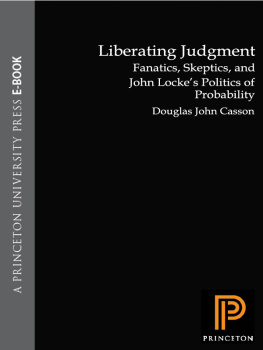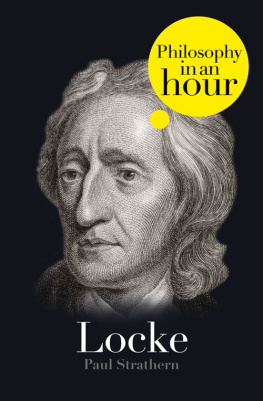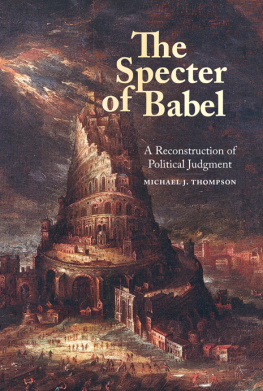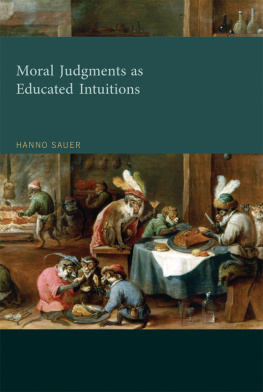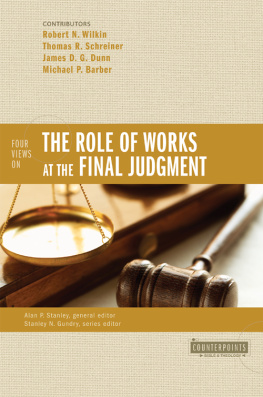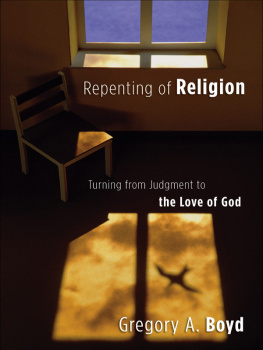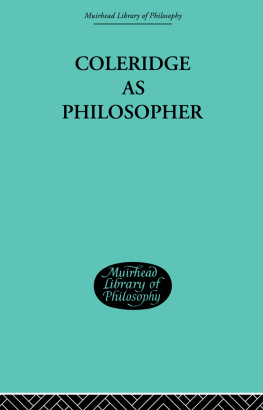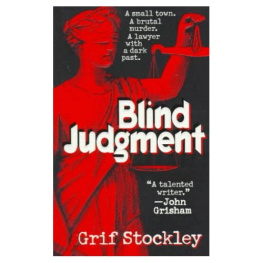Casson, Douglas.
Liberating judgment : fanatics, skeptics, and John Lockes politics of
probability / Douglas John Casson.
p. cm.
Includes bibliographical references and index.
ISBN 978-0-691-14474-0 (hardcover : alk. paper) 1. Locke, John, 16321704.
2. Political sciencePhilosophyHistory17th century. 3. Judgment (Logic)
I. Title.
JC153.L87C38 2011
320.01dc22 2010018916
Printed on acid-free paper.
Acknowledgments
ONE OF THE MOST IMPORTANT LESSONS I have learned while studying John Locke and his predecessors is that intellectual labor is never a completely solitary affair. While researching and writing this book, I have benefited from the work of innumerable scholars. My greatest debt, however, is to Ruth Grant, without whom this project would never have been completed. Her unwavering support and stubborn common sense first convinced me to reevaluate the prevailing critiques of classical liberalism and to take a closer look at the complexities of Lockes thought. Throughout this process, she provided me with a living example of how a scholar can be intellectually rigorous, academically generous, and profoundly humane.
I am also happy to recognize a debt to my other teachers, especially Michael Allen Gillespie, Timothy Fuller, Sanford Kessler, Thomas Spragens, Jr., Alasdair MacIntyre, Rom Coles, and Peter Euben. Although their approaches vary significantly, they have all shaped the way I think about the questions raised in this book. In the early stages of this project, many friends and colleagues, including Thomas Merrill, Craig Borowiak, Tania Roy, Johnny Goldfinger, Matthew Specter, and John Zachman, provided invaluable friendship, criticism, and encouragement. I presented some of the ideas that eventually found their way into this book in a number of contexts, and I thank the members of panels and audiences for helping me to clarify my views. I am especially grateful to Bryan Garsten, Steven Forde, and Peter Josephson for stimulating conversations and thoughtful advice. My colleagues at St. Olaf College, including Sheri Breen, Christopher Brunelle, Tony Lott, Kathy Tegtmeyer Pak, Dan Hofrenning, Greg Walter, Jeanine Grenberg, and Anthony Rudd, provided support and a bit of prodding during the final stages of writing. I am also thankful to Shawn Paulson and Emily Tremblay for reading through parts of the manuscript in its final form.
The Earhart Foundation provided generous support for the final stages of this project. I would also like to thank Ian Malcolm and all of the helpful people at Princeton University Press. I would especially like to express my gratitude to Barbara Shapiro and an anonymous reviewer for their close reading of my manuscript. Their thoughtful comments and criticisms spurred me to make much-needed changes to the original manuscript. Any infelicities and oversights that remain are my own.
I owe a greater debt to my extended family than I can articulate here. My parents and siblings have encouraged me to pursue my intellectual interests while making sure that I did not take myself too seriously. The Stromberg family has been unwavering in their patience and encouragement, especially when I needed it most. My children, Martha Grace, Alexander, and Claire, continually remind me to delight in the unpredictable. Finally, my wife, Kathleen, has patiently tolerated the musings and complaints involved in producing this book and responded with good humor, unflagging support, and sound judgment. I dedicate this work to her.
Introduction
The Great Recoinage
THE ACHIEVEMENT OF LIBERAL SELF-GOVERNMENT is by no means inevitable. It is a complicated, contingent, and ultimately provisional undertaking. This observation might seem commonplace, yet it is also commonly ignored. Enchanted by the belief that liberal democracy is the result of the effortless proliferation of universally accepted principles, its supporters have underestimated the difficulty of fostering stable and just communities both at home and around the world. They have failed to see that government based on free and equal participation cannot simply be decreed, and have thus overlooked the many ways in which such polities can falter. Perhaps such overconfidence was predictable. In the wake of international liberal ascendancy, it has been tempting to assume that everyone embraces the same political aspirations.
Yet this costly self-assurance is not only the result of the proliferation of regimes claiming to be liberal democracies. It also stems from the way in which modern liberalism has come to understand itself as primarily a set of political axioms that can be universally endorsed. All rational individuals, it is assumed, can agree on a set of basic commitments: a hostility toward tyranny, a faith in toleration, an insistence on representative government and the separation of powers, a commitment to free inquiry in the arts and sciences, a conviction that the common good is served through regulated private ownership, and most importantly, the belief that governments are human creations that derive their legitimacy from the consent of the governed. These commitments seem so familiar that it is difficult to imagine that anyone could object to them. In the context of such a consensus, it would seem that liberal democracy could be justified and sustained simply by the articulation of its principles.
By assuming that political justification rests solely on abstract principles, however, we have tended to overlook the dangers and excesses to which liberalism is especially vulnerable. We have ignored the ways in which liberal institutions can foster the very conditions that threaten their continued viabilityconditions characterized by isolating egoism, thoroughgoing materialism and secularism, and the uncritical pursuit of a narrowly self-interested freedom. Such conditions can undermine shared political commitments, breeding both debilitating skepticism and violent fanaticism.
The liberal emphasis on intellectual and moral autonomy can make citizens especially susceptible to the perils of radical subjectivity and disconnectedness. Cut off from a shared sense of place or tradition, they risk stumbling into the Tocquevillean nightmare in which each man is narrowly shut in himself and from that basis makes pretense to judge the world. Modern liberalism seems to foster a skepticism concerning the possibility of genuinely shared standards of judgment. This type of skepticism isolates citizens from one another and undermines their ability to form stable and lasting communities. Given the capacity of liberalism to fracture and isolate individuals, it is not hard to understand the continuing allure of religious and ideological movements that promise to clarify political ambiguities by offering members a sense of certainty that transcends the doubts and disagreements that pervade liberal culture. These movements cannot simply be dismissed as the last gasps of an atavistic faith or the predictable symptoms of socioeconomic deprivation. They continue to appeal to individuals living in a world shaped by liberal institutions and practices because they respond to an inextinguishable desire for transcendent assurance, a desire that liberalism often seems to suppress or ignore. In fact, the restlessness and uncertainty that characterizes liberal democratic culture seems at times to nurture a type of fanaticism that promises clarity by imposing uniformity.

